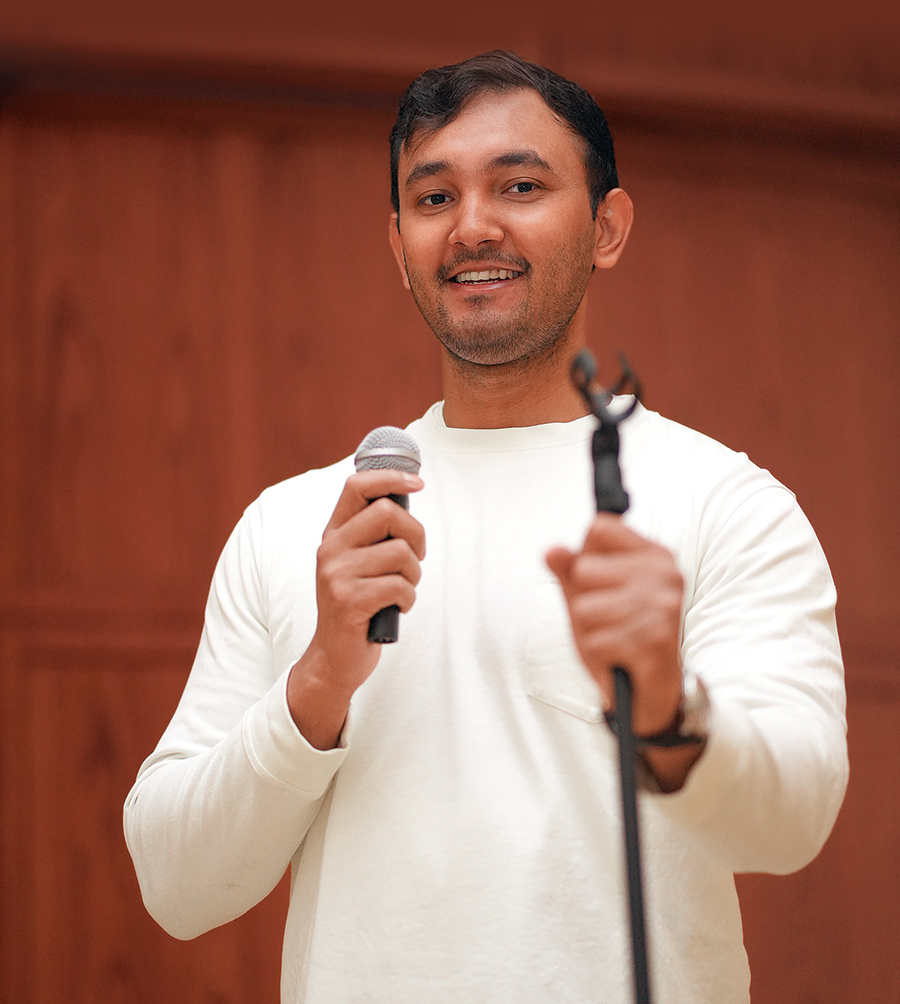Penn Law Journal Summer 2021

2022
Experiential
Learning

Editor
Larry Teitelbaum
Design
Landesberg Design
Senior Contributing Writer
Lindsay Podraza
Contributing Writer
Jay Nachman
Photography
Charles Shan Cerrone
Mike Colosimo
Sameer Khan
James Molloy
Alyson Rorem
Stephen Voss
Website
law.upenn.edu/alumni/alumnijournal/
Keep in Touch
Send news and photos to the attention of the editor.
Corrections
Every effort has been made to ensure accuracy. We offer our sincere apologies for any typographical errors or omissions. Please forward any corrections to the attention of:
Larry Teitelbaum
Editor, The Journal
University of Pennsylvania
Carey Law School
3501 Sansom Street
Philadelphia, PA 19104
Telephone 215 573 7182
Fax 215 573 2020
Email alumnijournal@law.upenn.edu
The University of Pennsylvania values diversity and seeks talented students, faculty and staff from diverse backgrounds. The University of Pennsylvania does not discriminate on the basis of race, color, sex, sexual orientation, gender identity, religion, creed, national or ethnic origin, citizenship status, age, disability, veteran status or any other legally protected class status in the administration of its admissions, financial aid, educational or athletic programs, or other University-administered programs or in its employment practices. Questions or complaints regarding this policy should be directed to the Executive Director of the Office of Affirmative Action and Equal Opportunity Programs, Sansom Place East, 3600 Chestnut Street, Suite 228, Philadelphia, PA 19104-6106; or (215) 898-6993 (Voice) or (215) 898-7803 (TDD).




At Issue 04
In Session 06
Fine Print 52
In Memoriam 70
Adjourned 81
From The Dean
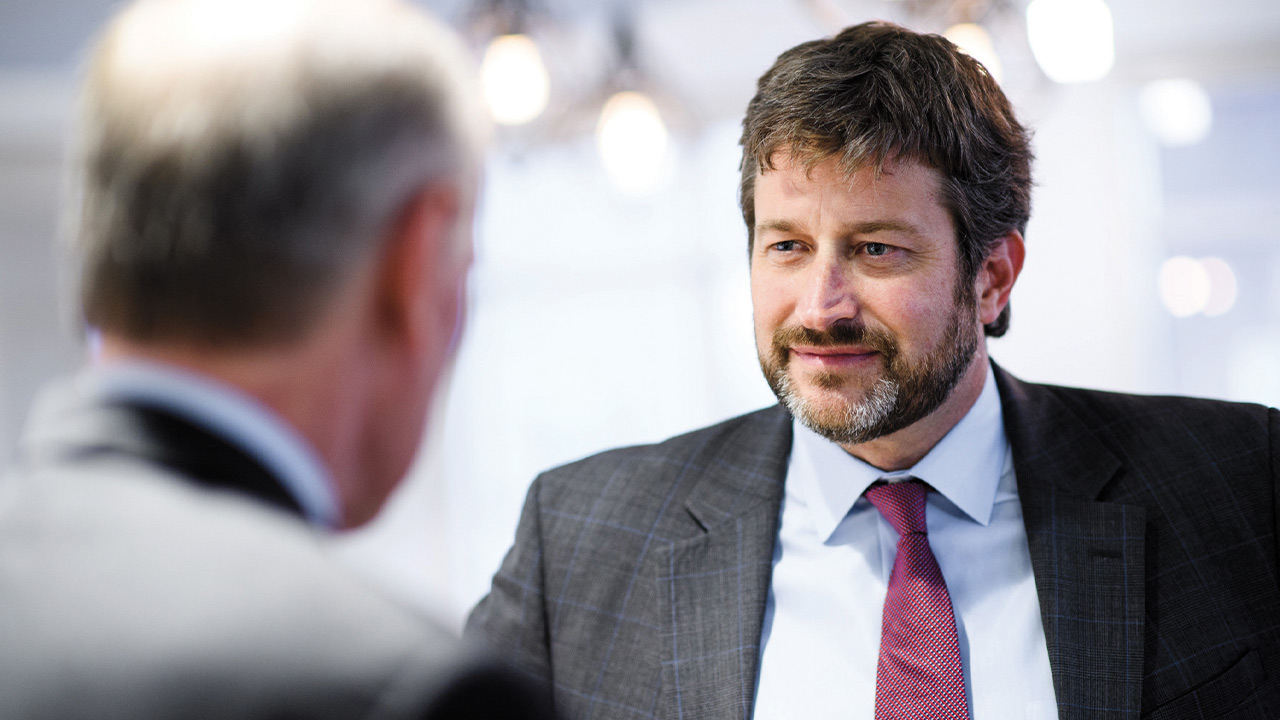
We are readying students for the transition to work in ways I could have scarcely imagined when I went to law school.
Last school year, there were 132 courses in this broad category— the largest number of offerings during my tenure as dean and ostensibly ever. This boom in practical skills training is an extension of our celebrated clinical education program, which is going strong after 46 years.
There has long been a debate about how students should spend the second and third years of law school. More than 20 years ago, the authors of a seminal report on law school training from The Carnegie Foundation for the Advancement of Teaching put forth what many were thinking: focus more on practice. And the American Bar Association eventually ran with that recommendation, requiring law students to earn six credits in experiential learning in order to graduate.

#penncareyLaw

@DorothyERoberts discusses the racialized history of parenting, family autonomy, and the child welfare system in new podcast, “How Is That Legal?” tinyurl.com/5xz7rr5u

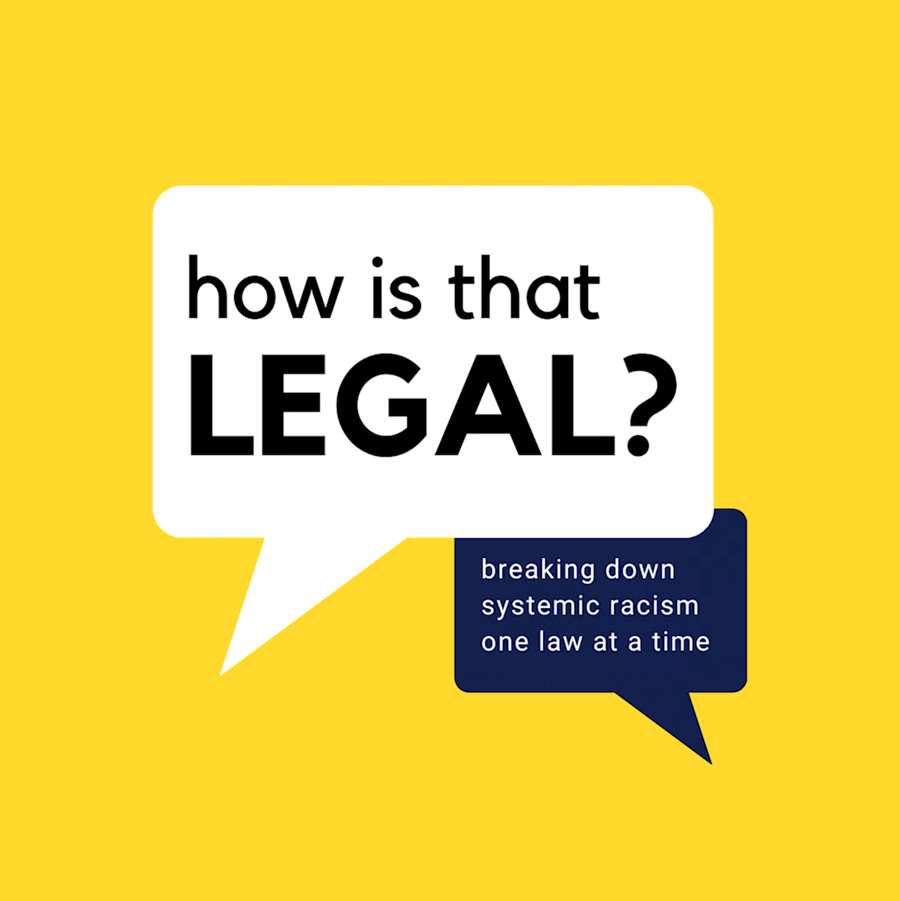
Presidential Distinguished Professor of Law and Energy Policy
#penncareyLaw



@DorothyERoberts discusses the racialized history of parenting, family autonomy, and the child welfare system in new podcast, “How Is That Legal?” tinyurl.com/5xz7rr5u
Presidential Distinguished Professor of Law and Energy Policy
Opinion
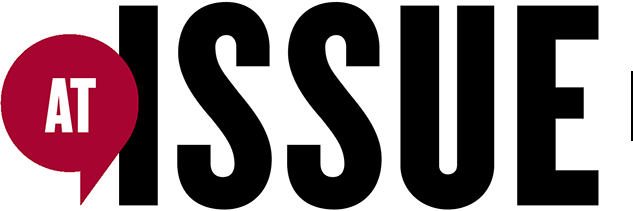
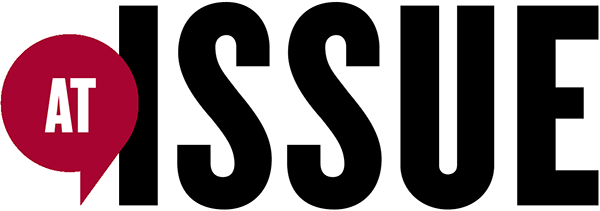
Ballard Spahr’s Journey Toward Equity

The achievement of a diverse workforce is a goal that cannot be left to chance. Today’s business leaders must act purposefully in establishing the importance of diversity, equity, and inclusion in their strategic plans. From attracting the best talent and valuing and investing in employees, to providing excellent service to a diverse client base, diversity, equity, and inclusion are essential in today’s competitive environment. Law firms may need to be first movers in some instances, but ultimately must take a methodical, deliberate, and reflective approach to building and cultivating a diverse workforce.
At Ballard, we came to understand that true diversity — representation across varied perspectives, backgrounds, and experiences — was possible only if we committed to two essential companion principles: equity and inclusion. Inclusion happens when we engage and integrate colleagues from all backgrounds, empowering them to contribute their perspectives and ideas. We incorporated the concept of inclusion into our diversity strategy in 2014. The adoption of equity into our diversity and inclusion strategy, in November 2021, was a natural evolution that reflects our firm culture and society at large. Our commitment to equity ensures that everyone has access to resources and opportunities that lead to success and removes barriers for those who may not have had full access to resources and opportunities in the past.
Ballard has sought to be a Diversity, Equity, and Inclusion leader. Our efforts have been led by a full-time diversity professional since 2006, and in 2011, when we elevated the position to Chief Diversity Officer, we were among just a few large law firms to have taken that step. Being a thought leader does not necessarily mean we value being a first mover in all things, however.
Our Diversity, Equity, and Inclusion Council wanted the firm to be thoughtful in incorporating equity as part of our diversity and inclusion core values. We sought to understand and define what a commitment to equity would mean for Ballard, how it would look and feel, and how we would achieve it. Our intention was not to add equity as a performative gesture or out of social pressure, but as a genuine, informed, and deliberate shift in mindset and behavior.
Why add equity? The killing of George Floyd, Ahmaud Arbery, Breonna Taylor, and so many others. Hate crimes targeting Asian Americans. Voting restrictions that disproportionately impact communities of color. A heightened awareness of racial injustice. Pandemic-related gender and racial disparities. These and other societal scars shifted expectations; leaders were expected not just to talk about diversity, equity, and inclusion, but to drive social change.
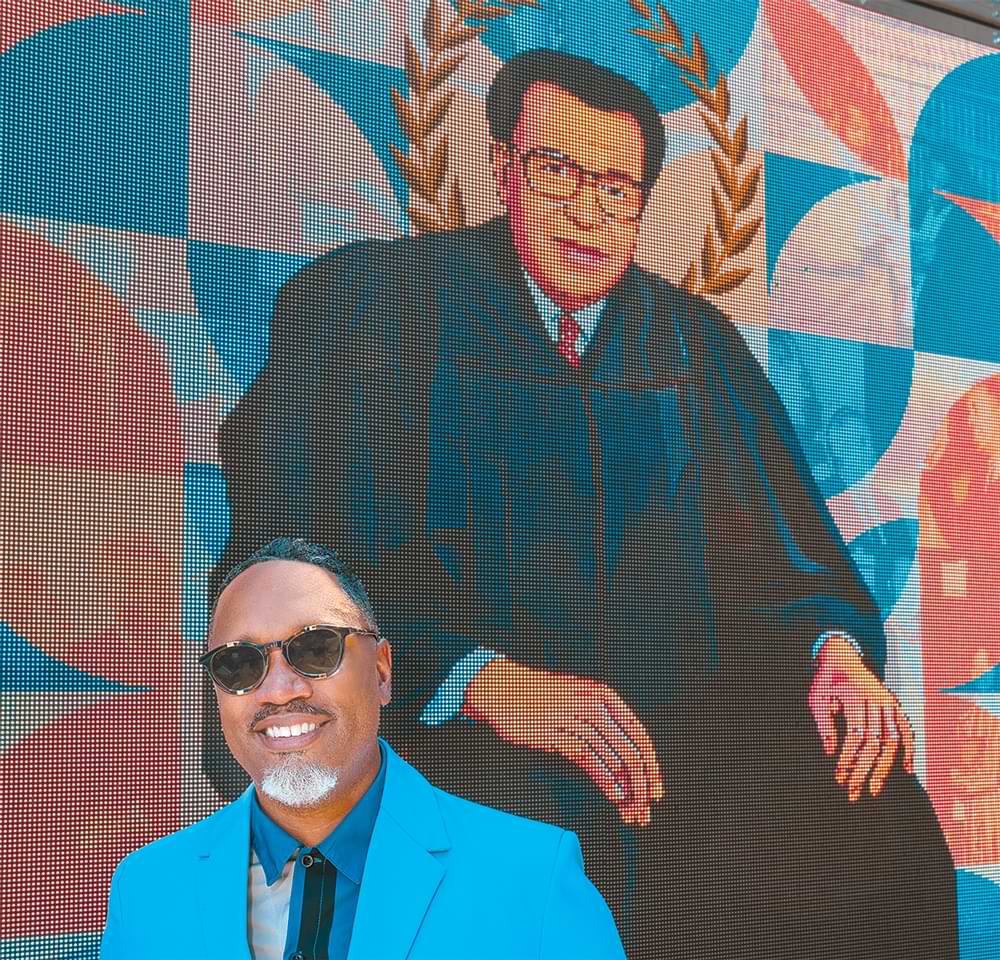

Shawn Theodore, an award-winning Philadelphia artist, was chosen for the mural project. The mural design is displayed behind him on a special truck with a digital screen.
Memorial Mural Celebrates Larger-Than-Life Jurist A. Leon Higginbotham Jr.
“To Wendella Fox, with fond memories of a superb student and with admiration for a superb lawyer,” the judge wrote in the just released In The Matter of Color: Race and the American Legal Process.
Fox was and remains astonished by his generosity. “I was a young whippersnapper back then, and he felt that way about me?”
Fox developed a lifelong friendship with Judge Higginbotham after taking his class on race and the law as a Penn undergraduate. The judge gave her a recommendation for law school and signed a certificate for her admission to the Pennsylvania bar.

Shawn Theodore, an award-winning Philadelphia artist, was chosen for the mural project. The mural design is displayed behind him on a special truck with a digital screen.

Meteor Naming Rights
ifty thousand years ago, a meteorite came crashing to Earth near what is now Winslow, Arizona, gouging a six-story-deep crater that is named for a Philadelphia mining engineer and Law School graduate, Daniel Barringer L’1882.
That distinction belongs to Barringer because he was considered the first person in the world to prove the existence of a meteorite crater on Earth, owing to his dogged study of the phenomenon over the last 20-plus years of his life.
The Barringer Space Museum, adjacent to the meteor crater, has become a major tourist attraction.
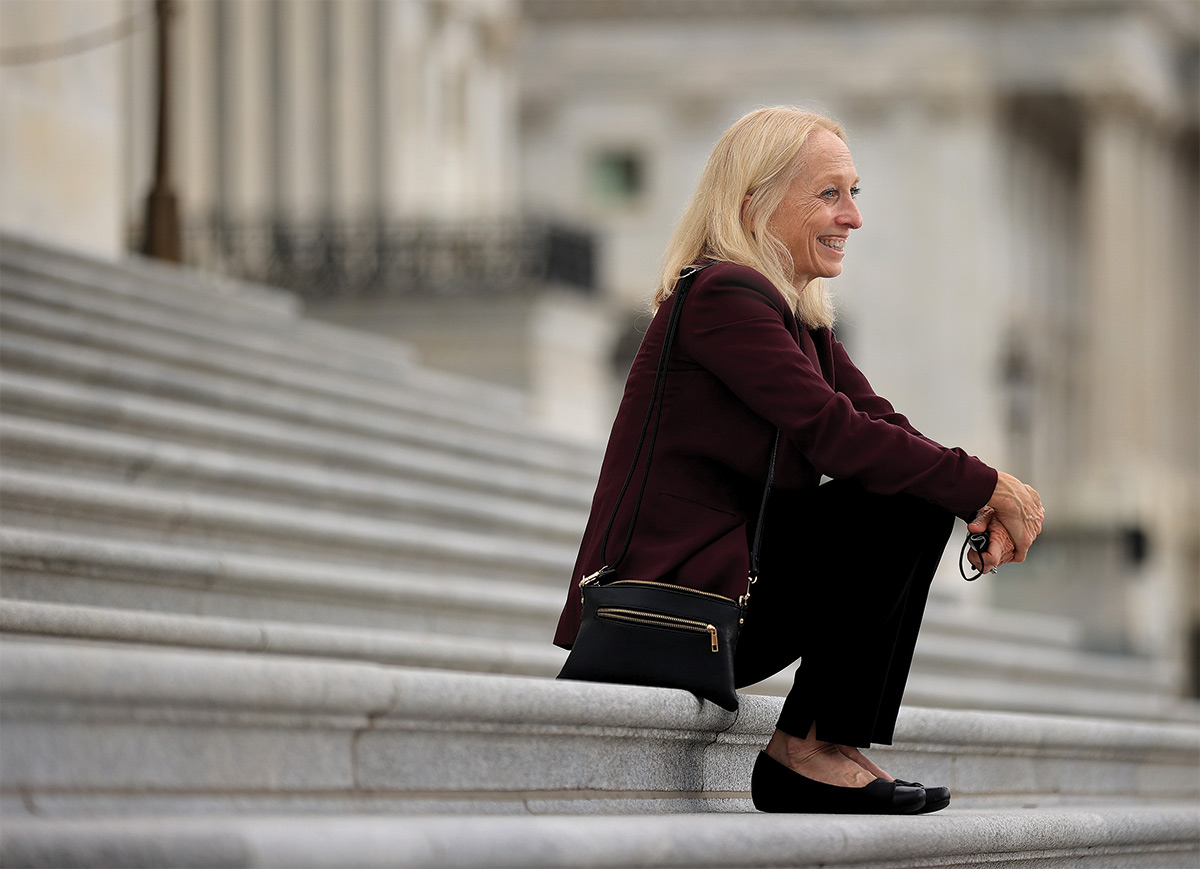
 U.S. Rep. Mary Gay Scanlon L’84 discussed her push to better regulate Big Tech during a privacy symposium sponsored by local chapters of the American Constitution Society and the Center for Technology, Innovation and Competition.
U.S. Rep. Mary Gay Scanlon L’84 discussed her push to better regulate Big Tech during a privacy symposium sponsored by local chapters of the American Constitution Society and the Center for Technology, Innovation and Competition.Congresswoman Mary Gay Scanlon L’84 and Senator Sheldon Whitehouse On How to Curb Big Tech and Big Money
In the Information Age, data has emerged as the coin of the realm; as a result, control of and access to this knowledge has become a hotly contested issue in Washington, D.C.
“We’re playing catch-up as we try to address the critical privacy concerns our new digital age has wrought,” Scanlon cautioned her audience.
She delivered her remarks during the morning keynote address of “Privacy & Law in the Modern Age,” a symposium sponsored by local college chapters of the American Constitution Society (ACS) and the Center for Technology, Innovation and Competition (CTIC).
News & Events

Practicing Mindfulness in Prison
“Being a prisoner is a place and not necessarily a state of mind,” Neuman said. “You’re only in prison to the extent you allow yourself to be. You have a choice. And there are some people who can get their minds settled down to a place where they can be incredibly productive and creative while in prison.”
The Neumans, early followers of Tibetan meditation master Chogyam Trungpa Rinpoche, have practiced meditation for more than 40 years. They began the Mindfulness Peace Project in 2004, which aims to help incarcerated individuals not only cope but also transform their approach to life. Neuman, in addition to serving as the nonprofit’s CEO, is the semi-retired principal of his own corporate and securities practice.
Three Alumni Honored for Their Impact on Lives Through Public Service
Other finalists for the award were: Kristen Dama L’07, Managing Attorney of SSI and Medical-Legal Partnership at Community Legal Services of Philadelphia, and Jessica Feierman L’99, Senior Managing Director at Juvenile Law Center and Adjunct Professor at the Law School.
The Alumni Impact Awards are given to Penn Carey Law alumni who have demonstrated a passionate commitment to public service throughout their career and who have excelled in using innovative thinking to produce concrete and sustainable solutions to societal problems. The work of the Alumni Impact Awards’ honorees has substantially improved the lives of the country’s most vulnerable populations.
“The Alumni Impact Awards are intended to honor leaders and innovators in public interest law, and this year’s finalists represent the wide-ranging and all-encompassing legal advocacy expected of Penn Carey Law alums,” said Ayanna Williams, Associate Director for the Toll Public Interest Service Corps. “Deuel Ross has been instrumental in securing voting rights and desegregating schools. Kristen Dama has engaged in multiple successful initiatives to help people with disabilities and low-income families in getting needed assistance. Jessica Feierman has worked to eliminate costs, fines, and fees in the juvenile justice system. We were thrilled to honor them and look forward to commemorating their future accomplishments.”
Thanks to a transformational gift from the Robert and Jane Toll Foundation, founded by Robert Toll L’66 and Jane Toll GSE’66, Ross was awarded $10,000, and Dama and Feierman received $5,000 each.
The event took place in conjunction with the Pro Bono Recognition Event.
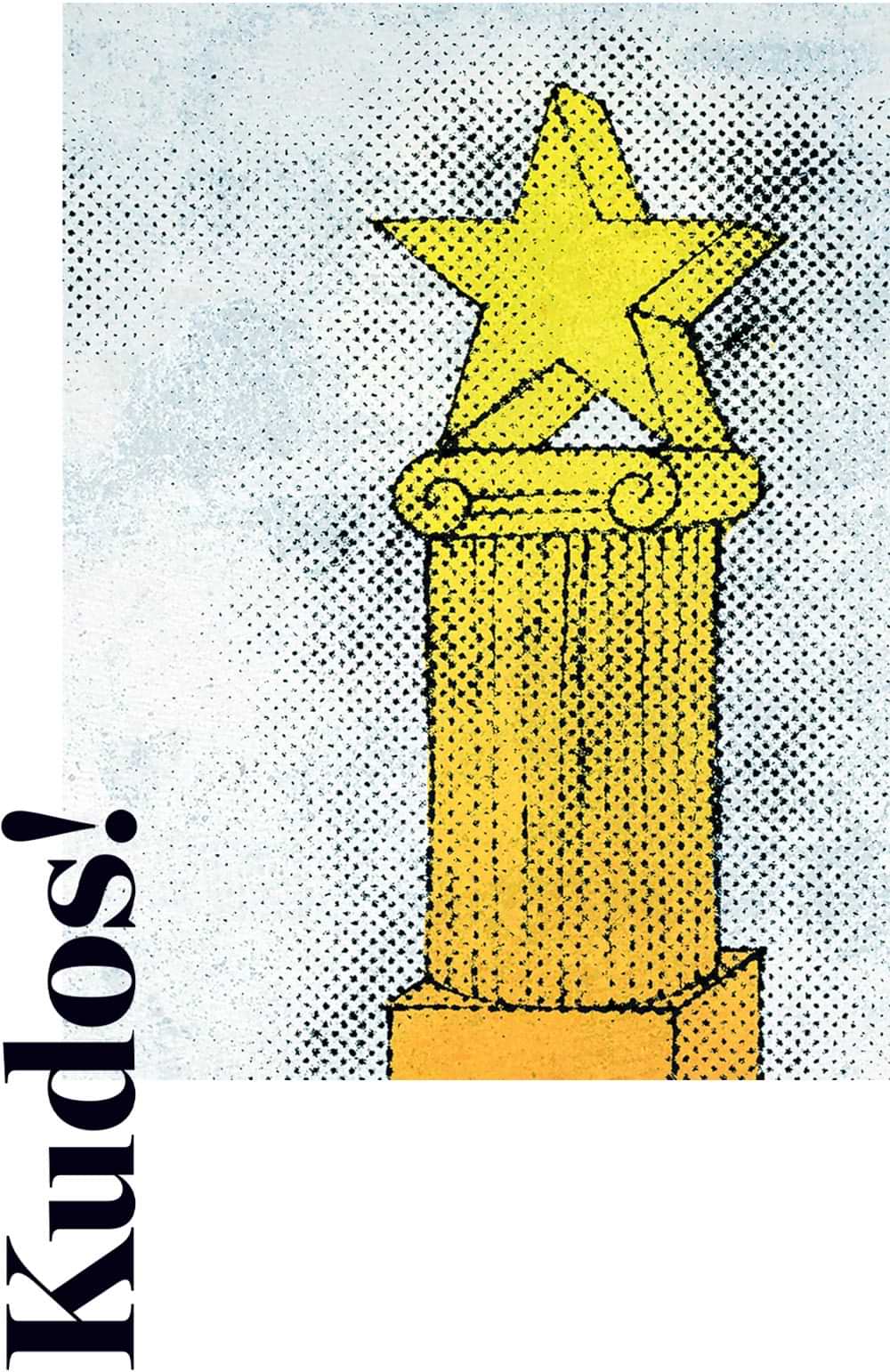
Law Alumni Society Honors Seven Leaders in Their Fields
The LAS awards were presented to Jena Griswold L’11, Damon Hewitt L’00, Tsiwen Law L’84, the Honorable Gene E.K. Pratter L’75, Ed Rock L’83, Andrew Jay Schwartzman L’71, and Tiffany Southerland SPP’08, L’11.
Griswold and Southerland were recipients of the Young Alumni Award, which recognizes extraordinary achievement in the 10 years following graduation.
Griswold, the Secretary of State in Colorado, has dedicated herself to the protection and expansion of voting rights, instituting automatic voter registration and increasing polling locations and mail-in drop boxes across the state. She was the director of the Washington, D.C., office of former Colorado Governor John Hickenlooper and served as a voter protection attorney for President Barack Obama’s reelection campaign in 2012.
Southerland is Director of Diversity & Inclusion at Troutman Pepper in Washington, D.C. She held similar positions at Pepper Hamilton and the Villanova University Charles Widger School of Law. She is a Lecturer of Law at the University of Pennsylvania Carey Law School and a member of the advisory board of the Law School’s Future of the Profession Initiative.
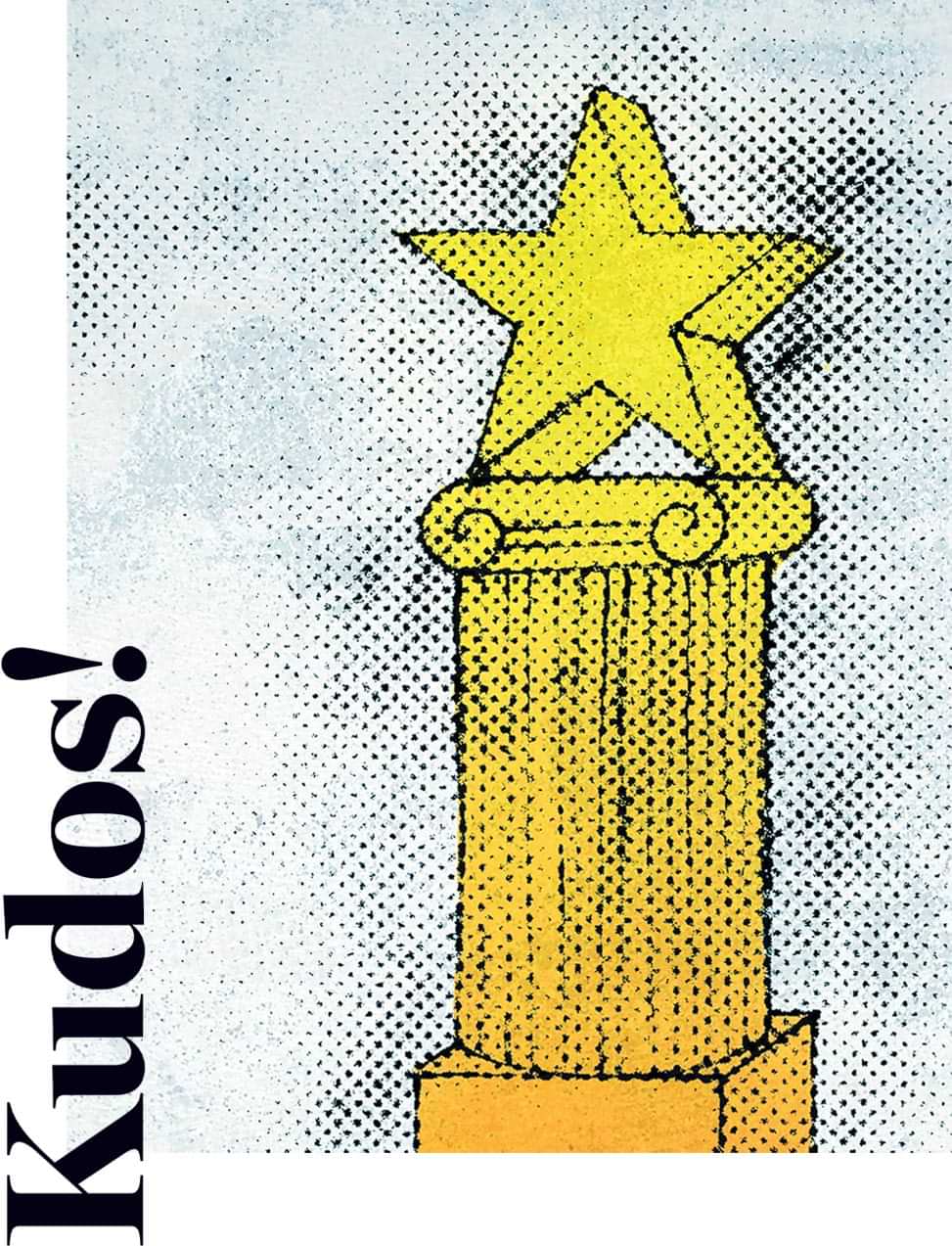
Law Alumni Society Honors Seven Leaders in Their Fields
The LAS awards were presented to Jena Griswold L’11, Damon Hewitt L’00, Tsiwen Law L’84, the Honorable Gene E.K. Pratter L’75, Ed Rock L’83, Andrew Jay Schwartzman L’71, and Tiffany Southerland SPP’08, L’11.
Griswold and Southerland were recipients of the Young Alumni Award, which recognizes extraordinary achievement in the 10 years following graduation.
Griswold, the Secretary of State in Colorado, has dedicated herself to the protection and expansion of voting rights, instituting automatic voter registration and increasing polling locations and mail-in drop boxes across the state. She was the director of the Washington, D.C., office of former Colorado Governor John Hickenlooper and served as a voter protection attorney for President Barack Obama’s reelection campaign in 2012.
Southerland is Director of Diversity & Inclusion at Troutman Pepper in Washington, D.C. She held similar positions at Pepper Hamilton and the Villanova University Charles Widger School of Law. She is a Lecturer of Law at the University of Pennsylvania Carey Law School and a member of the advisory board of the Law School’s Future of the Profession Initiative.
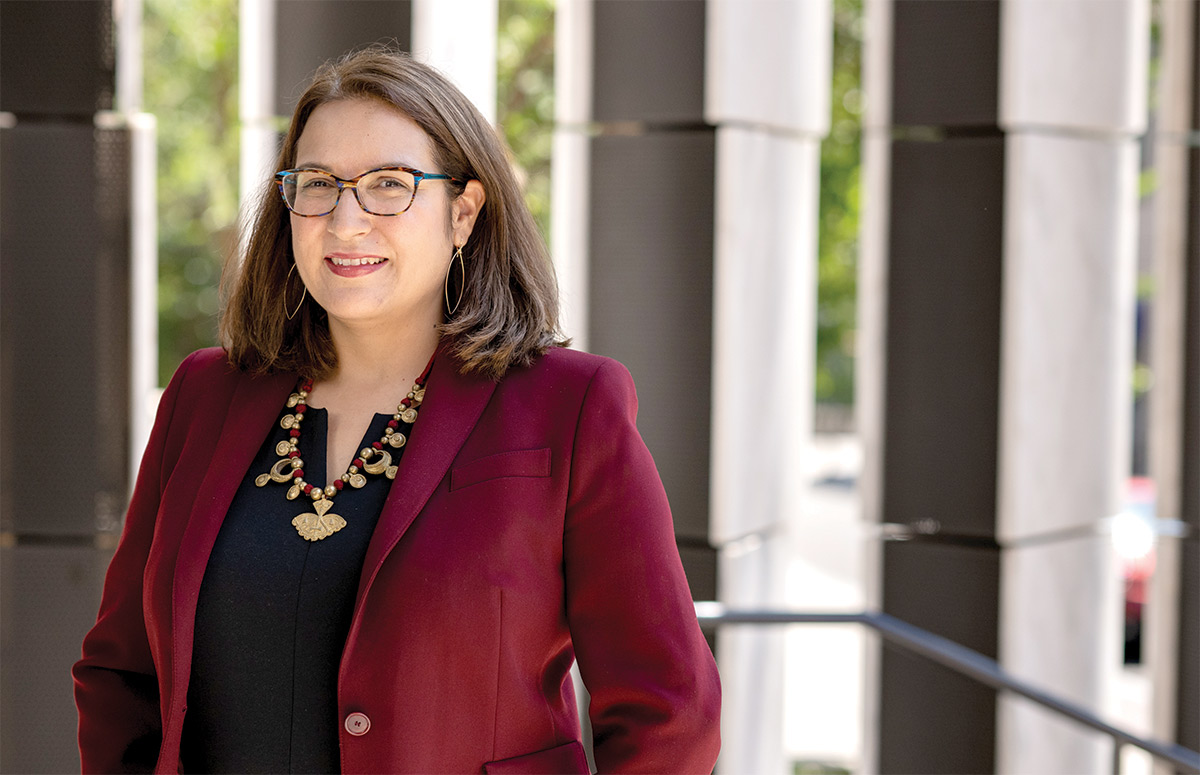
Professor Jasmine Harris Says It’s Time to Update Our Notions of Disability
“The classic symbol of disability is the wheelchair, or you think of white canes,” Harris said. “When people have a less visible disability — where, for instance, COVID and long COVID are going to fall — there’s this deep-seated distrust about accessing legal entitlements and exercising rights, primarily because of a pervasive fear of fraud that underwrites disability law.”
Harris is referring to President Biden’s proclamation last July that long COVID can qualify as a disability. She is referring as well to the U.S. Equal Employment Opportunity Commission’s (EEOC) subsequent decision to update its guidance to include symptoms like brain fog and difficulty remembering or concentrating, substantially limited respiratory functions, and chest pains as impairments that may meet the definition of disability under federal disability laws.





data engineer at Tesla
Crash Course
Aren Raisinghani C’19, ENG’19, GEN’21, ML’21 Helps Drive Crash Safety at Tesla
self-proclaimed car enthusiast, Aren Raisinghani C’19, ENG’19, GEN’21, ML’21 recalls frequenting McLaren and Fisker dealerships near his high school in Palo Alto, California.
Now as a data engineer at Tesla’s Fremont office, Raisinghani is thrilled to combine his love for cars with engineering ingenuity. He serves on Tesla’s safety and restraints team, where he focuses on crash safety. “We’re essentially working on safety for all Tesla cars — airbags, seatbelts, seats,” Raisinghani said.
At Penn, he studied computer science and cognitive science in the undergraduate artificial intelligence program and earned his Master of Science degree in systems engineering, which looks at optimization through a mathematical lens. At the University of Pennsylvania Carey Law School, he focused on business and technology. After interning at Tesla, he was happy to join the company permanently.
Anita L. Allen Receives High Honors from the American Philosophical Association and the Berkeley Center for Law & Technology for Her Work on Privacy
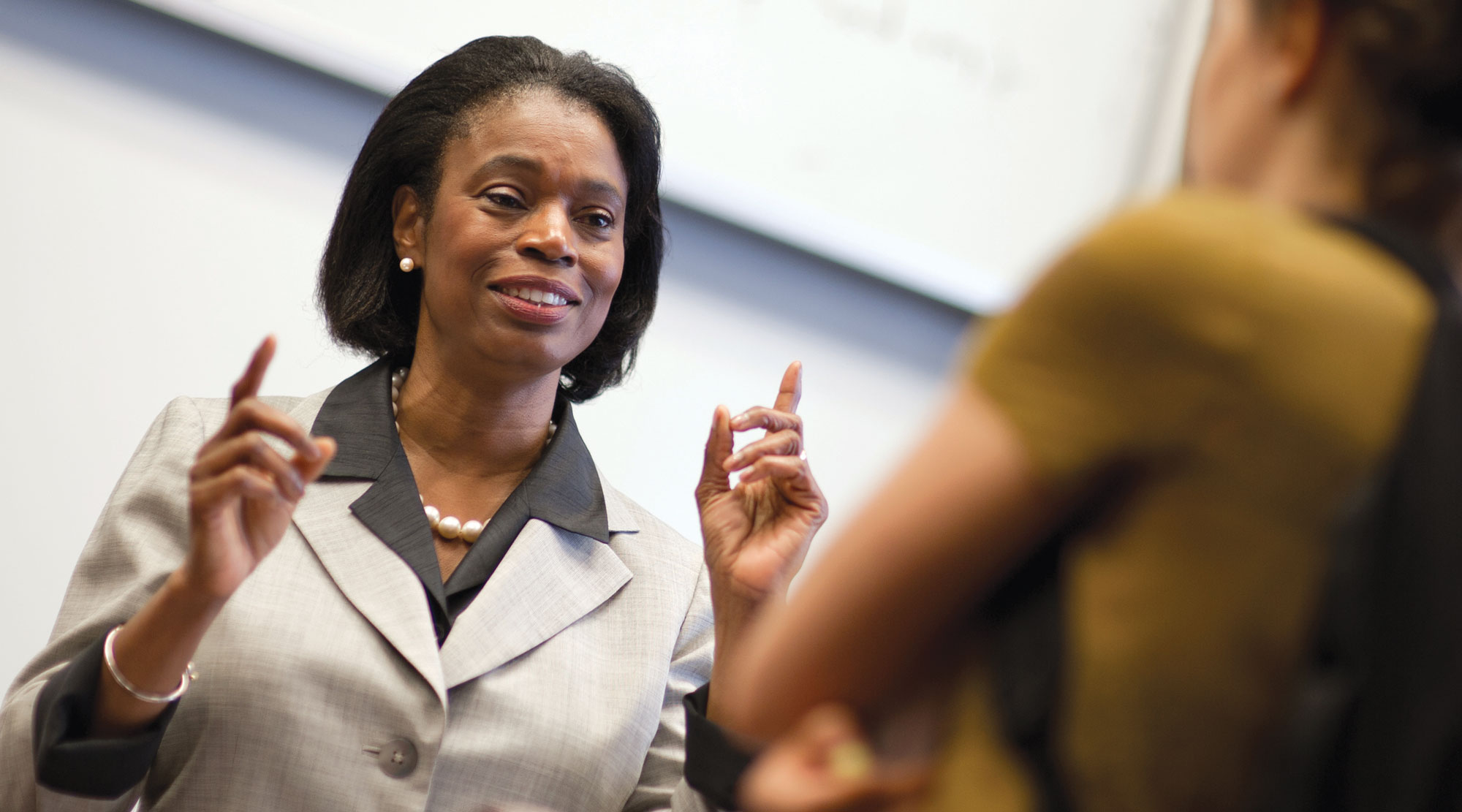

Anita L. Allen Receives High Honors from the American Philosophical Association and the Berkeley Center for Law & Technology for Her Work on Privacy
The award celebrates Allen, former President of the APA Eastern Division, for her extraordinary blend of scholarship and leadership.
“This award means the world to me,” Allen said. “It reflects the unexpected success of my interdisciplinary commitments as a scholar, teacher, and mentor. It was remarkable to have been the first Black woman APA president in 2018–19 and it’s a special achievement, as a Black woman, to be receiving the highest award for service to the discipline.”
In a separate ceremony, Allen received the 2022 Berkeley Center for Law & Technology Privacy Award at the 10th Annual BCLT Privacy Law Forum.
New Certificate Provides Cross-Disciplinary Perspective to Better Serve the LGBTQ+ Community
The certificate program, also offered to students at the School of Social Policy & Practice, Penn Nursing, and the Graduate School of Education, provides a unique opportunity for students to delve deeply into law and policy issues that are crucial to the continued defense and advancement of LGBTQ+ rights.
Though several Law School courses already incorporate LGBTQ+ issues and advocacy, a formalized, cross-disciplinary program will enable students to study issues from multiple perspectives alongside students from other schools within the University of Pennsylvania.
Associate Professor at Penn’s School of Social Policy & Practice Dr. Amy Hillier spearheaded the creation of the interdisciplinary certificate in response to growing feedback from students in her Social Work courses who expressed that they would like more resources and support in preparing to serve LGBTQ communities. Learning that Penn Nursing and Graduate School of Education students had also expressed similar interests, Hillier applied for a Penn Futures grant to design the interdisciplinary program of study.
As the program continues to grow, Hillier said that she is excited to welcome law students, who play a crucial role in advocating for the protection and advancement of LGBTQ+ rights.
“There’s a lot of growing we want to do, and we look forward to having the support of the Law School,” Hillier said. “It’s really impressive to see the list of things that the Law School is doing, especially in the Office of Equity & Inclusion — and this is part of that, too.”
The LGBTQ Certificate is one of 17 certificate programs and over 40 cross-disciplinary offerings available to JD students. There is no application process for the certificate; students who wish to earn the LGBTQ Certificate must officially express their interest then create an individualized plan to complete the necessary requirements, which will be audited when they graduate.
In designing the certificate, Hillier noted that it was important to everyone to ensure that the content was truly cross-disciplinary and customizable to what each student needed to learn to best serve LGBTQ+ communities within their own profession.
“People have different values. Between law students, social workers, nurses, and teachers, there are probably going to be some differences, so we’ve tried to make the certificate that is not just everyone coming to take social work classes,” Hillier said. “Instead, it really is something that has a shared ownership.”

Citation

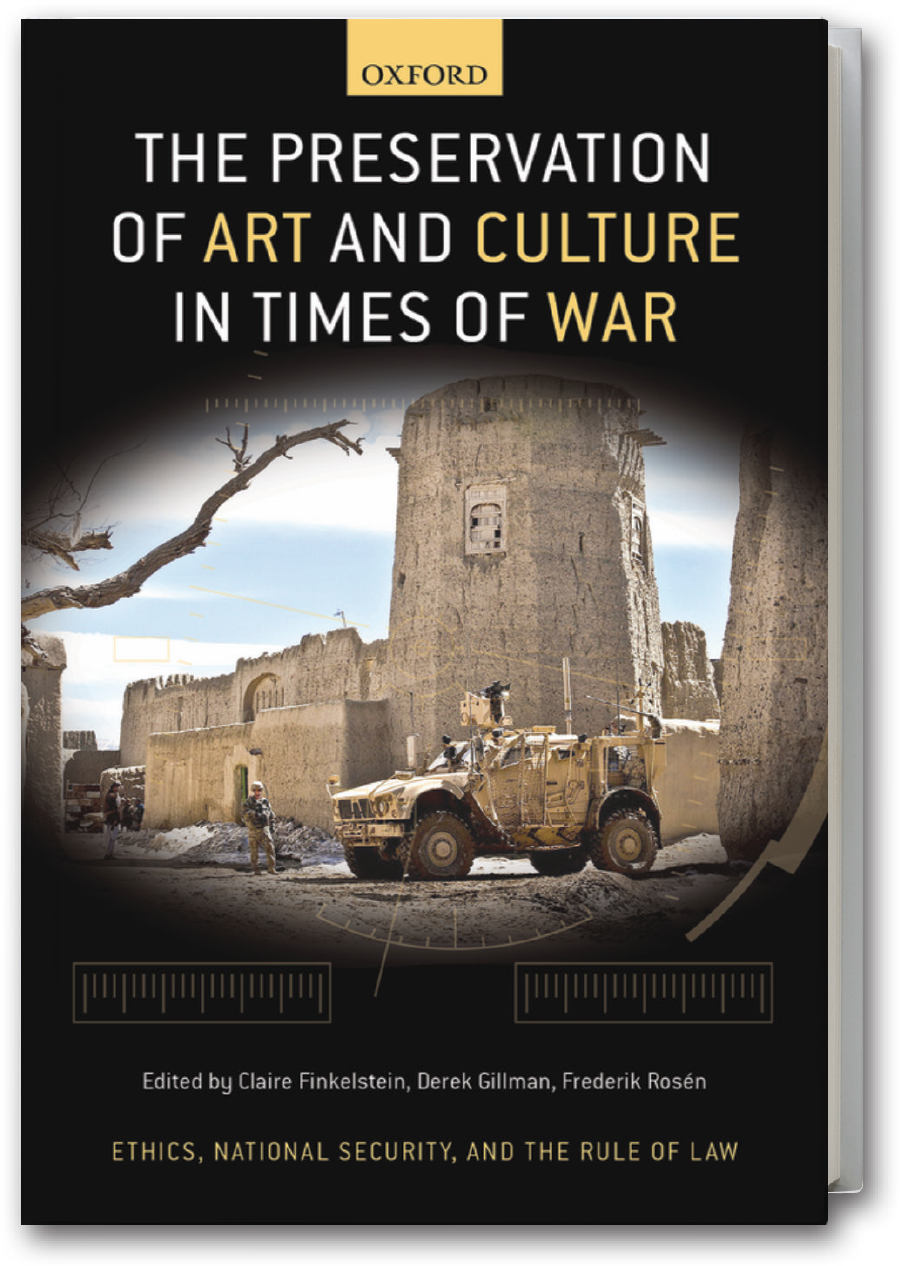
The Preservation of Art and Culture in Times of War: Ethics, National Security, and the Rule of Law
Algernon Biddle Professor of Law and Professor of Philosophy Claire Finkelstein, Derek Gillman, and Frederik Rosén
Oxford University Press
The conflict over cultural heritage has increasingly become a standard part of war. Today, systematic exploitation, manipulation, attacks, and destruction of cultural heritage by state and non-state actors form part of most violent conflicts across the world.
The book includes contributions from a wide range of experts who discuss some of the most fundamental questions and tensions inherent in the foundations of democracy.
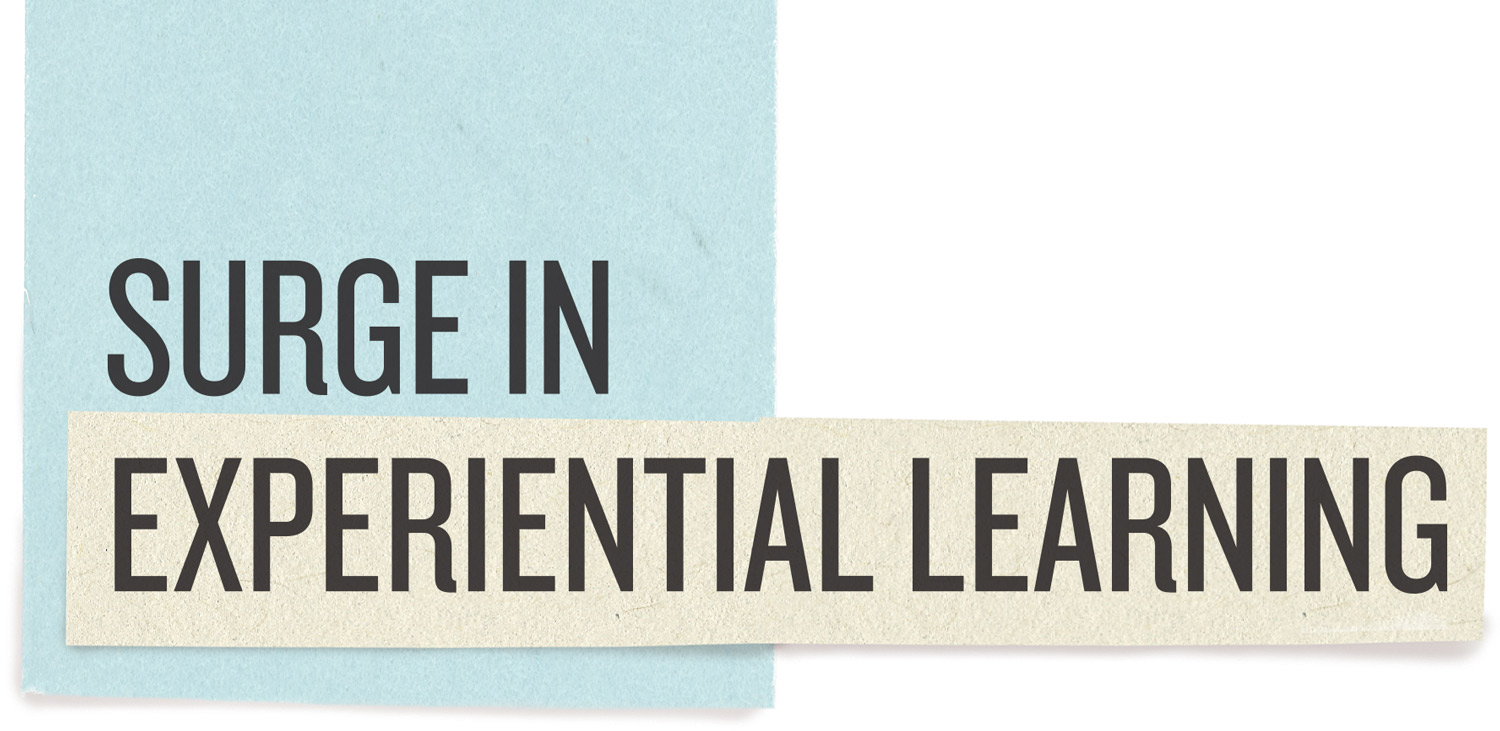
Surge in Experiential Learning
By Larry Teitelbaum

Surge in Experiential Learning

By Larry Teitelbaum

hen Eleanor Barrett L’05 was in law school, she had a thin catalog of experiential learning courses to choose from — a handful of clinics or appellate and trial advocacy classes.
The situation is far different today thanks to Barrett’s diligent efforts as Associate Dean for Curricular Affairs.
How about 132 experiential learning courses — from transactional to litigation to regulatory to soft skills such as legal writing and public speaking? Penn Carey Law students can now pitch venture capitalists for start-up funding in real time, practice challenges to administrative rules, and perform substantive work in judicial chambers during the semester.
Take externships alone. Since 2010, the number of students enrolled in externships each semester has increased from 10 to 67, including almost 30 students during the spring 2022 semester who worked with the Law School to create their own new and varied placements.


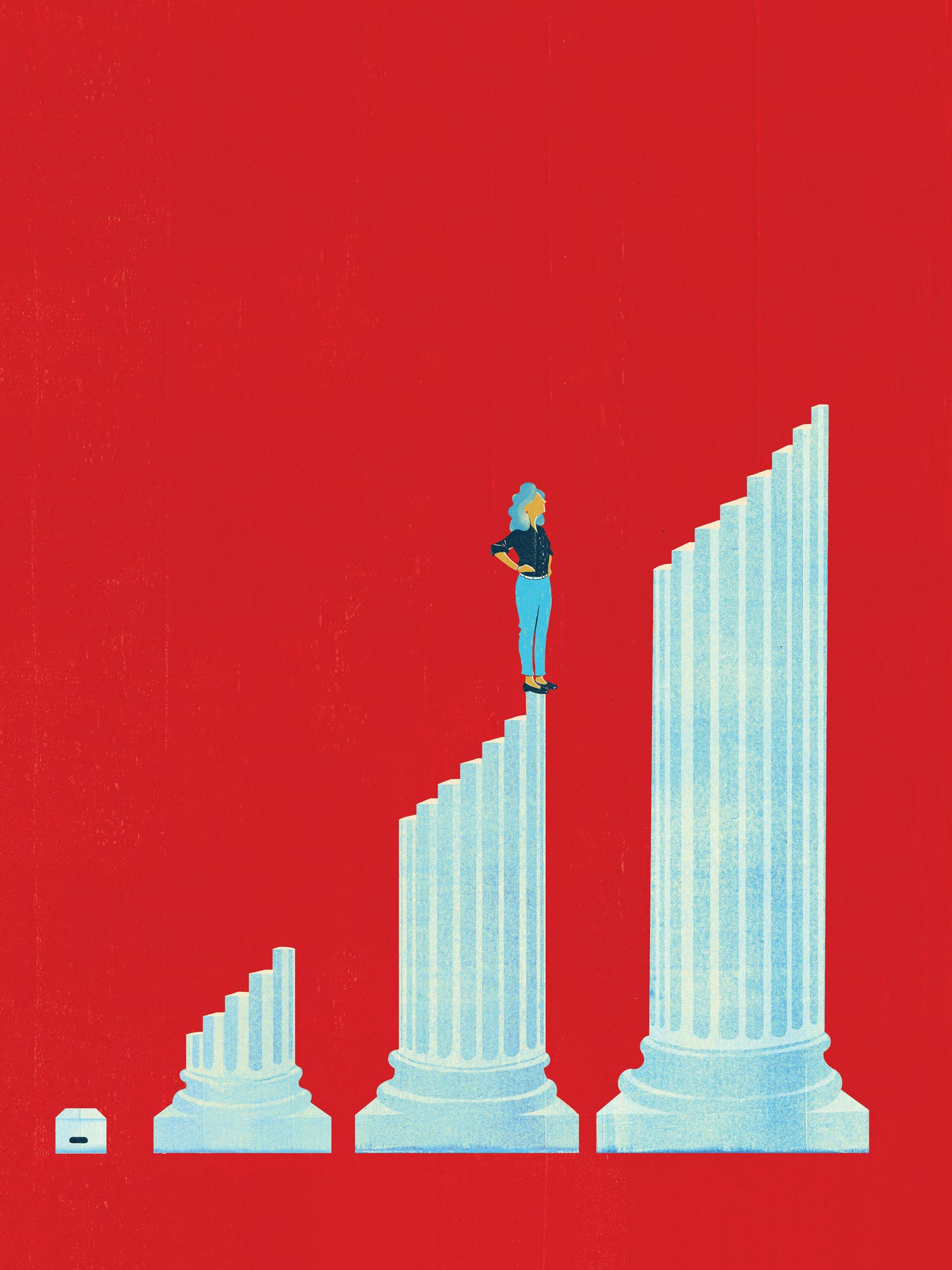


hen Nicole Galli C’89, L’92 opened ND Galli Law LLC in 2015, she wanted to join a network of other women who owned firms.
She quickly hit a snag: no such network existed.
A year later, Galli approached seven other women about starting a group, and they agreed to form a host committee.
“I thought it was brilliant, I thought there was absolutely a need for it,” said Laura Nussbaum Solomon L’92, PAR’25, who owns Laura Solomon, Esq. & Associates and became integral to the network’s launch. “I’d been mentoring women one by one because there was no such thing, and Nicole was the one who had the insight to create it.”
The network became Women Owned Law, a tax-exempt nonprofit trade association that today has approximately 200 members across the country.
Earlier this year, Women Owned Law held its third national symposium, attended by 100 women.

Government
Pipeline
By Larry Teitelbaum
herrod Smith L’22 is pursuing his dream. Starting this fall, he will be working on civil rights and public corruption cases, police policy, and post-conviction review on sentencing law as an Honors Attorney in the New Jersey Attorney General’s Office, Office of Public Integrity and Accountability.
For Smith, the Leo Model Foundation Government Service and Public Affairs Initiative “anchored his experience” at the Law School, connecting him to a supportive community of public service-oriented students and alumni and encouraging his personal and professional aspirations.
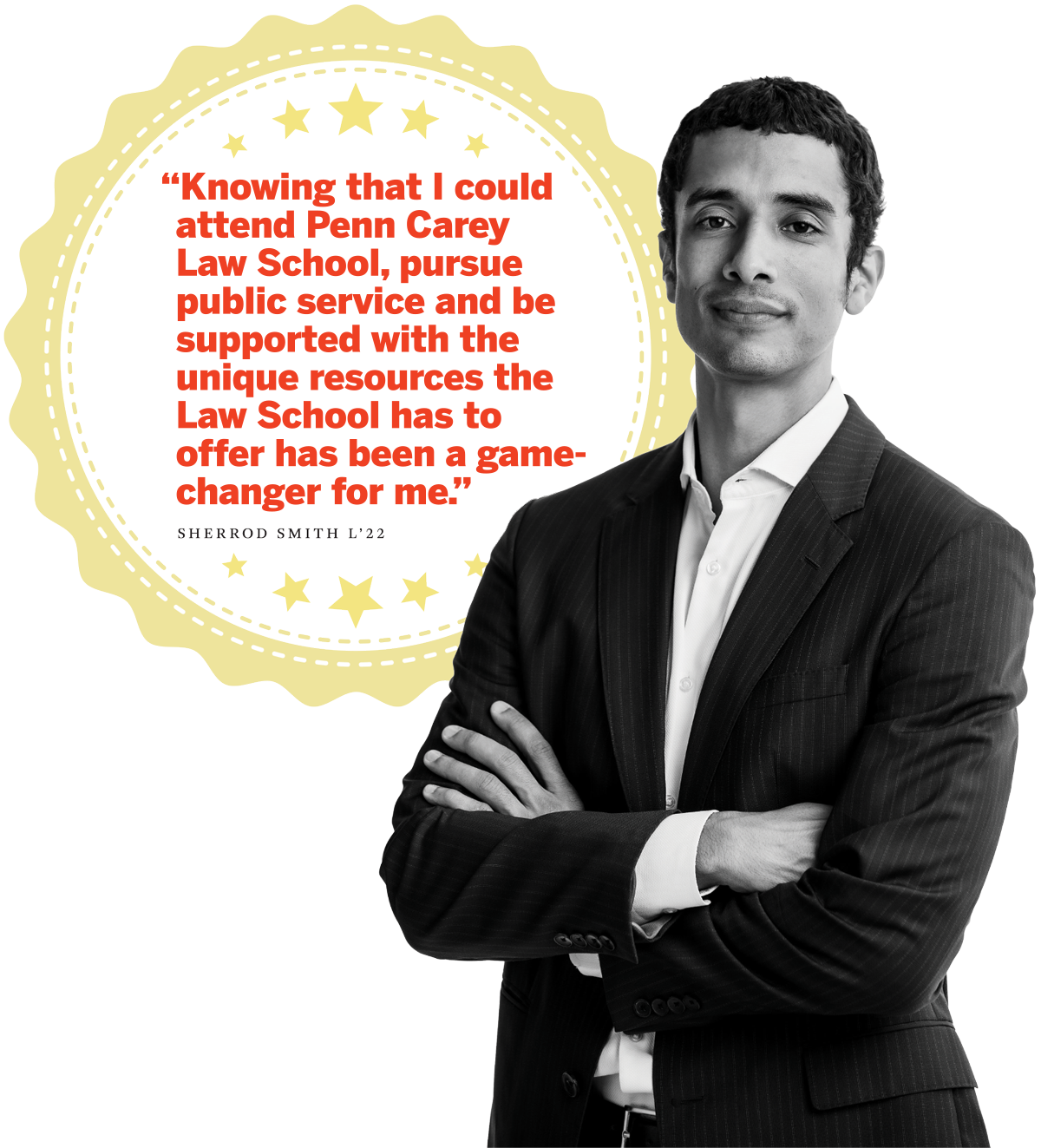
Class Notes
Fine Print
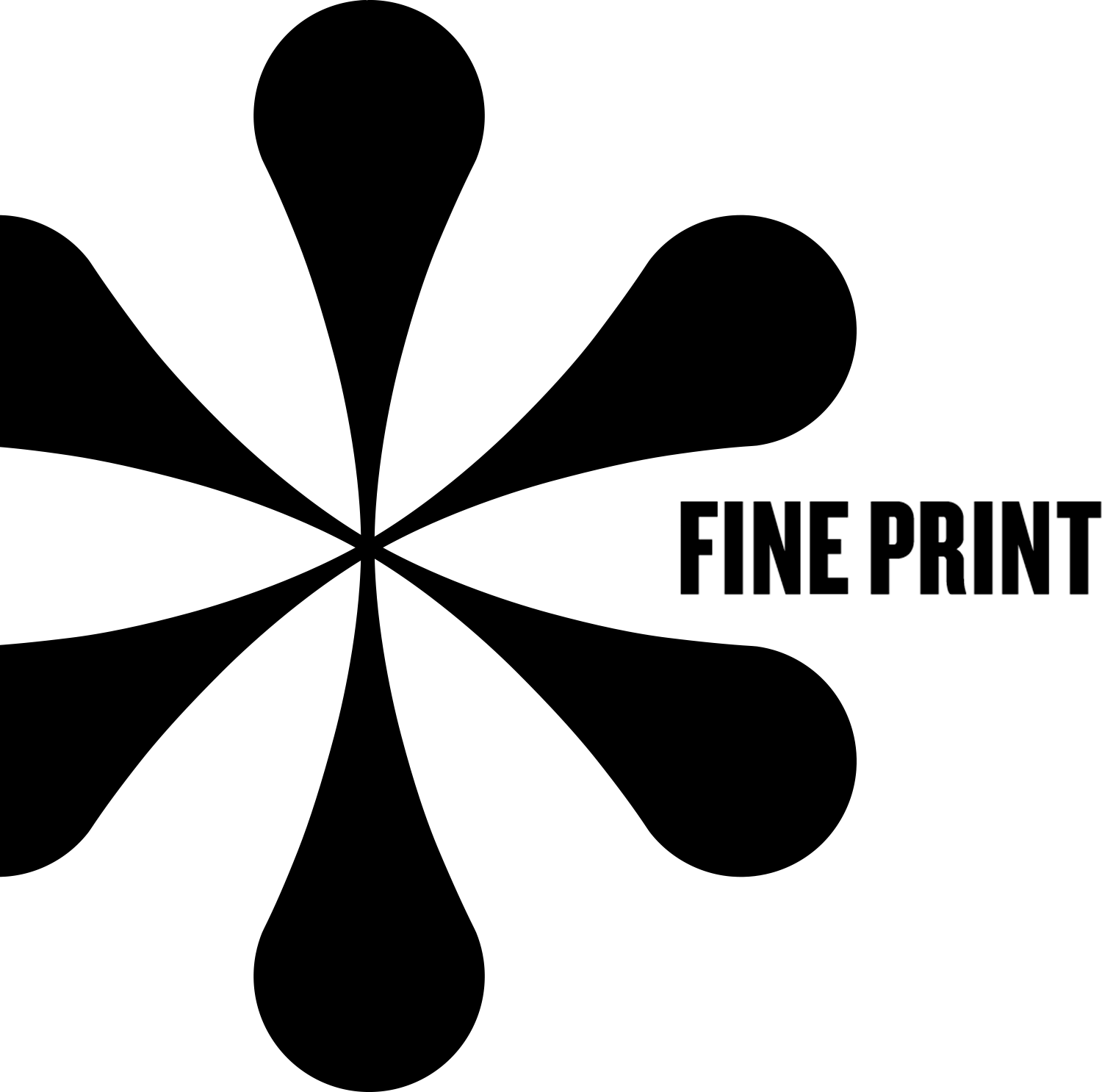
1950s

1960s


Leading Philadelphia’s Pandemic-Weary Old City Back to Life
But these days, Job Itzkowitz L’04, the Executive Director of Old City District, is delighted that signs of life are returning to Independence Hall and the Liberty Bell.
As Executive Director, a role he’s held since 2014, Itzkowitz manages the day-to-day operations of Old City District, which is one of Philadelphia’s 15 Business Improvement Districts (BID). Old City District operates as a municipal authority, supplementing municipal services, and its budget is paid by commercial property owners in the district. For example, Old City District funds daily street sweeping, private security teams, police details, text alert systems to connect businesses, streetscape improvements and economic development work. It hosts both the annual Old City Fest and the summertime Old City Eats Happy Hour.
COVID-19, however, changed everything. “Like anywhere in the world, it was a big challenge, and Old City was no exception,” he said.
When everything shut down in March 2020, Old City had to get creative to survive.
In Memoriam

Remembering Michael Wachter
ichael L. Wachter, William B. Mary and Mary Barb Johnson Professor of Law and Economics, Emeritus, passed away on September 3.
Wachter was a prodigious, award-winning scholar, an influential teacher who nurtured numerous high-profile careers, and a visionary builder of the University of Pennsylvania’s Carey Law School’s renowned Institute for Law & Economics (ILE), He was emblematic of the movement to infuse a cross-disciplinary approach into legal education and other fields of study.
During his remarkable 50-year career at Penn, Wachter taught at the Law School, the School of Arts and Sciences (Professor of Economics), and the Wharton School (Professor of Management) and served as the University’s Deputy Provost.
“Michael Wachter’s contributions to Penn and to the Law School cannot be overstated,” said Ted Ruger, Dean of the Law School and Bernard G . Segal Professor of Law. “He reshaped how we think about issues surrounding corporate law with his singular vision and inspired and launched generations of students into fulfilling careers through his dedicated teaching and mentorship. We mourn his loss but celebrate a consequential life.”
ADJOURNED
ADJOURNED
